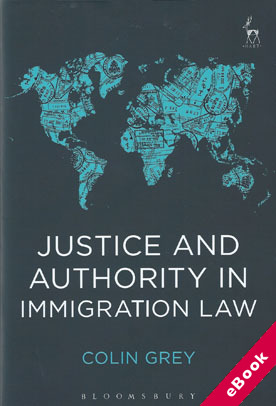
The device(s) you use to access the eBook content must be authorized with an Adobe ID before you download the product otherwise it will fail to register correctly.
For further information see https://www.wildy.com/ebook-formats
Once the order is confirmed an automated e-mail will be sent to you to allow you to download the eBook.
All eBooks are supplied firm sale and cannot be returned. If you believe there is a fault with your eBook then contact us on ebooks@wildy.com and we will help in resolving the issue. This does not affect your statutory rights.
This book provides a new and powerful account of the demands of justice on immigration law and policy. Drawing principally on the work of Adam Smith, Immanuel Kant, and John Rawls, it argues that justice requires states to give priority of admission to the most disadvantaged migrants, and to grant some form of citizenship or non-oppressive status to those migrants who become integrated.
It also argues that states must avoid policies of admission and exclusion that can only be implemented through unjust means. It therefore refutes the common misconception that justice places no limits on the discretion of states to control immigration.